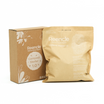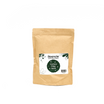Benefits of Using Wood Chips


Wood chips are a versatile material that have been embraced in various sectors, from gardening to playground safety. Their natural aesthetic, functionality, and sustainability make them a popular choice for a wide array of uses. In this article, we will explore the numerous benefits of using wood chips and how they can be an asset to your projects and outdoor spaces.
We have compiled a comprehensive guide that addresses these topics:
Table of contents a. Composting Definitions b. Why Compost at Home? c. Benefits of Composting
Why does our partnership matters
For every purchase, we plant 1 TREE to nurture our planet 🌲Together, we are sowing the seeds of change and cultivating a greener, more sustainable world.
Anything else?
Anything else?You willl also receive an official certificate from Greenspark as a token of appreciation for your commitment to the environment! 📜
How do we see the progress?
How do we see the progress?Join us on this remarkable journey towards an impact dashboard.You can see how your eco-smart choice made the world a better place
 View more
View more
Your support empowers reforestation, fights climate change,
and paves the way for a brighter, eco-friendly future.
Join us on this remarkable journey towards a cleaner,healthier planet.
Shop with a purpose, shop with Reencle! 🛒💚

Why does our partnership matters
For every purchase, we plant 1 TREE to nurture our planet 🌲Together, we are sowing the seeds of change and cultivating a greener, more sustainable world.
Anything else?
Anything else?You willl also receive an official certificate from Greenspark as a token of appreciation for your commitment to the environment! 📜
How do we see the progress?
How do we see the progress?Join us on this remarkable journey towards an impact dashboard.You can see how your eco-smart choice made the world a better place
 View more
View more
Your support empowers reforestation, fights climate change,
and paves the way for a brighter, eco-friendly future.
Join us on this remarkable journey towards a cleaner,healthier planet.
Shop with a purpose, shop with Reencle! 🛒💚
a. Composting Definitions

Composting represents a regulated, aerobic (requiring oxygen) procedure wherein organic substances undergo natural decomposition to transform into a nutrient-enriched, biologically stable soil amendment or mulch. The resultant outcome is known as compost. Throughout the composting process, microorganisms consume the materials integrated into the compost pile, utilizing carbon and nitrogen for growth and reproduction, water for material digestion, and oxygen for respiration. It is entirely feasible to engage in composting at home by incorporating kitchen food scraps along with dry leaves and woody debris from your yard.
1. The Aesthetic Appeal of Wood Chips

Enhancing Garden Beauty
Wood chips can elevate the beauty of any garden. They add a rustic, natural charm to landscaping, creating a cohesive look that can tie together different elements of your garden. By using wood chips as mulch, you not only enhance the visual appeal but also suppress weeds, which can otherwise detract from the beauty of your outdoor space.
Versatility in Landscaping
Wood chips come in various colors and textures, allowing for flexibility in design. Whether you're aiming for a quaint cottage garden or a sleek, modern landscape, wood chips can be chosen to complement the desired aesthetic. They can be used to create pathways, define borders, or serve as a backdrop for showcasing plants and flowers.
2. Environmental Benefits of Wood Chips
Sustainable Resource
Wood chips are a byproduct of tree trimming and lumber production, making them a sustainable option for landscaping. Using wood chips contributes to a circular economy by repurposing what would otherwise be waste materials. This reduces the environmental impact and supports sustainability practices.
Soil Health Improvement
When used as mulch, wood chips can improve soil health. They slowly decompose, adding organic matter to the soil, which enhances soil structure, aeration, and nutrient content. This creates a healthier environment for plants to grow.
Water Conservation
Wood chips help to retain moisture in the soil by reducing evaporation rates. This means less frequent watering is required, conserving water and saving time and resources. For areas prone to drought, wood chips can be an essential component of water-wise landscaping.
3. Practical Benefits in Agriculture and Livestock
Livestock Bedding
In agricultural settings, wood chips can serve as bedding for livestock. They provide a comfortable, dry surface for animals and can be easily composted with manure to create nutrient-rich fertilizer for crops.
Pathways and Paddock Surfacing
Using wood chips to surface pathways and paddocks can prevent muddy conditions, especially during wet seasons. This creates a cleaner environment for both livestock and farmworkers and can help to control pests by reducing standing water.
4. Choosing the Right Wood Chips
Types of Wood Chips
Not all wood chips are created equal, and the type you choose can affect their performance and longevity. Hardwood chips are denser and break down slower, making them suitable for long-term mulching. Softwood chips, on the other hand, decompose faster and may be more appropriate for playgrounds where regular replenishment is expected.
Sourcing Bulk Wood Chips
For larger projects, sourcing bulk wood chips can be a cost-effective solution. Many suppliers offer wholesale prices for high-volume purchases, which can significantly reduce the cost per cubic yard. When searching for "bulk wood chips," consider the source, quality, and delivery options to ensure you get the best deal for your needs.
5. Potential Drawbacks and How to Mitigate Them
Attracting Pests
One concern with using wood chips is the potential to attract pests such as termites or rodents. To mitigate this risk, avoid placing wood chips directly against your home or wooden structures. Additionally, using cedar or cypress chips can help deter insects due to their natural oils and scent.
Nitrogen Depletion
As wood chips decompose, they can temporarily deplete nitrogen from the soil, which is essential for plant growth. To combat this, consider adding a nitrogen-rich fertilizer to the soil before applying wood chips, or use composted wood chips that have already begun to break down.
6. Maintenance and Longevity of Wood Chips
Refreshing Mulch Layers
Wood chips used as mulch will decompose over time and need to be replenished. Typically, adding a fresh layer once a year is sufficient to maintain the benefits and keep your landscape looking its best.
Decomposition and Nutrient Release
The decomposition process of wood chips not only contributes to soil health but also releases nutrients slowly over time. This provides a steady supply of nourishment for plants, reducing the need for synthetic fertilizers.
7. Conclusion
Wood chips are more than just a decorative element for gardens and landscapes. They offer a multitude of benefits, from environmental sustainability to improving soil health and providing safe playground surfaces. Whether you're a homeowner looking to enhance your garden or a city planner designing a community playground, incorporating wood chips can be a smart, cost-effective, and attractive choice.
By understanding the different types of wood chips available and their respective advantages, you can make informed decisions that meet both aesthetic and practical needs. And for those with large-scale requirements, sourcing bulk wood chips can provide an economical and efficient solution. While there are some considerations to keep in mind, such as potential pest attraction and nitrogen depletion, these can be effectively managed with proper planning and care.
Incorporating wood chips into your outdoor projects can contribute to a healthier environment, promote sustainability, and create beautiful, functional spaces for everyone to enjoy. So, the next time you're contemplating the perfect material for your garden, remember the numerous benefits that wood chips have to offer.
b. Why Compost at Home?

● Composting is like nature's way of recycling. It's a powerful way for us to cut down on our trash, help with climate change, and make good soil. When we turn our kitchen scraps and yard waste into compost, we're changing our leftovers into something useful for the Earth.
● You can easily recycle the food scraps and yard waste you make at home all year long by composting. This helps a lot because it reduces the amount of stuff that would normally go to landfills or be burned in incinerators – things like leaves, grass clippings, and food scraps. Plus, it stops harmful gases from going into the air.
● Composting doesn't take much work, fancy tools, money, or know-how, and it can be kind of fun. The cool part is you end up with a free, good-quality soil booster called compost. This means you won't need as much plant food or bug spray, so you save money.
● The compost you make isn't just good for reducing waste and saving cash. You can use it to make your soil healthier, stop soil from washing away, save water, and make your plants in the garden and yard grow better. In simple terms, composting is an easy and helpful way to deal with trash that benefits both the environment and your own space..











